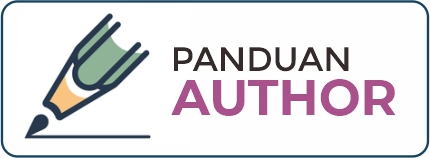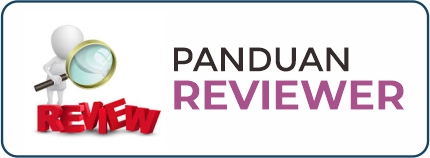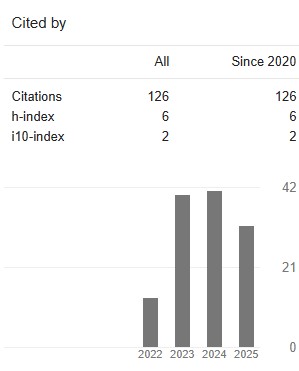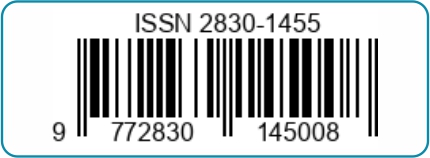Manajemen Rantai Pasok Halal di Indonesia: Analisis SWOT dan Implikasi Strategis
Halal Supply Chain Management in Indonesia: SWOT Analysis and Strategic Implications
DOI:
https://doi.org/10.36701/al-khiyar.v5i2.2651Keywords:
halal, supply chain, SWOT, strategyAbstract
This study aims to identify the key strengths, weaknesses, opportunities, threats, and strategic directions that influence the sustainability and effectiveness of Halal Supply Chain Management (HSCM) at the national level. Employing a mixed-methods approach with an exploratory sequential design, the research integrates qualitative and quantitative analyses through the SWOT framework and the Internal–External (IE) Matrix. The findings reveal that Indonesia possesses significant strategic potential to develop a globally competitive halal supply chain, supported by its large Muslim consumer base, robust regulatory framework, growing public awareness, and the rapid expansion of halal-oriented MSMEs. Nevertheless, several structural weaknesses persist, including limited halal logistics infrastructure, high certification costs, weak inter-agency coordination, and low halal literacy among business actors. Opportunities arise from the rapid expansion of the global halal economy, digital innovation (blockchain, IoT, big data), and increasing international demand for ethical and sustainable halal products. Meanwhile, the main challenges include competition with benchmark countries, varying international halal standards, and dependency on imported raw materials. The IE Matrix positions Indonesia in the high–high quadrant, indicating a growth strategy through vertical integration—strengthening local production, standardization, digital traceability, and institutional synergy. Through this strategic approach, Indonesia has the potential to transform from the world’s largest halal consumer market into a leading producer and innovation hub in the global halal economy.
Downloads
References
Andriani, Andriani. “Manajemen Rantai Pasok Dan Proyeksi Sertifikasi Halal Pedagang Daging Ayam Kota Kediri.” Bisnis Jurnal Bisnis Dan Manajemen Islam 11, no. 1 (2023): 51. https://doi.org/10.21043/bisnis.v11i1.19965.
Aslikhah, Aslikhah, and Alimatul Faridah. “Strategi Penguatan Halal Supply Chain Di Indonesia Dalam Menghadapi Global Islamic Economy.” Jurnal Istiqro 7, no. 1 (2021): 95–108.
Asri, Kholifatul Husna, and Amin Ilyas. “Penguatan Ekosistem Halal Value Chain Sebagai Pengembangan Industri Halal Menuju Era 5.0.” Alif 1, no. 1 (2022): 37–47.
Azam, Md Siddique E, and Moha Asri Abdullah. “Global Halal Industry: Realities and Opportunities.” IJIBE (International Journal of Islamic Business Ethics) 5, no. 1 (2020): 47–59.
Aziz, Fauzan, Retno Setyorini, and Yulia Nur Hasanah. “Analisis Halal Supply Chain Pada Usaha Mikro Kecil Menengah (UMKM) Makanan Di Kota Bandung.” Jurnal Ilmiah Ekonomi Islam 7, no. 1 (2021): 293–301. https://doi.org/http://dx.doi.org/10.29040/jiei.v7i1.1936.
Azwar. Membangun Ekosistem Industri Halal Di Indonesia: Menelisik Kekuatan, Kelemahan, Peluang, Dan Ancaman Serta Strategi Yang Efektif. Yogyakarta: Penerbit Deepublish, 2024.
Azwar, Azwar. “Peluang, Tantangan Dan Strategi Pengembangan Literasi Dan Sumber Daya Manusia Ekonomi Syariah Di Indonesia.” INFO ARTHA 7, no. 1 (2023): 18–30.
Azwar, Azwar, and Khaerul Aqbar. “Strategi Penguatan Industri Halal Di Indonesia: Analisis SWOT.” AL-KHIYAR: Jurnal Bidang Muamalah Dan Ekonomi Islam 4, no. 1 (2024): 47–71.
Bappenas. Masterplan Ekonomi Syariah Indonesia 2019-2024 Hasil Kajian Analisis Ekonomi Syariah Di Indonesia. Edited by Deputi Bidang Ekonomi. 1st ed. Jakarta: Kementerian Perencanaan Pembangunan Nasional/ Badan Perencanaan Pembangunan Nasional, 2018. https://kneks.go.id/storage/upload/1573459280-Masterplan Eksyar_Preview.pdf.
Chopra, Sunil, and Peter Meindl. “Strategy, Planning, and Operation.” Supply Chain Management 15, no. 5 (2001): 71–85.
Creswell, John W, and J David Creswell. Research Design Qualitative, Quantitative, and Mixed Methods Approaches. 5th ed. New York, NY: SAGE Publications, Inc, 2017. http://www.ceil-conicet.gov.ar/wp-content/uploads/2015/10/Creswell-Cap-10.pdf.
DinarStandard. “State of the Global Islamic Economy Report 2024/25,” 2025. https://salaamgateway.com/specialcoverage/SGIE24.
Djamba, Yanyi K. “Social Research Methods: Qualitative and Quantitative Approaches.” Teaching Sociology 30, no. 3 (2002): 380. https://doi.org/http://dx.doi.org/10.2307/3211488.
Fibrianto, Kiki, Nia N Wirawan, Siti N Wulan, Anis Miftachurrochmah, Tabitha Larasati, Hana Istianah, and Nila F Ariza. “Sosialisasi Dan Pendampingan Sertifikasi Halal Melalui SIHALAL Pada UMK Makanan Minuman Di Desa Wonorejo Kabupaten Malang.” Jurnal Abmas Negeri 5, no. 1 (2024): 60–68. https://doi.org/10.36590/jagri.v5i1.844.
Haryanto, Jennifer, and Gatri Lunarindiah. “Pengaruh Strategi Manajemen Rantai Pasok Terhadap Kinerja Operasional Dengan Mediasi Kompetensi Organisasi Pada Usaha Mikro, Kecil Dan Menengah.” Jurnal Ekonomi Trisakti 3, no. 1 (2023): 1187–96. https://doi.org/10.25105/jet.v3i1.15978.
Haryono, Haryono. “Strategi Pengembangan Industri Halal Di Indonesia Menjadi Top Player Global.” Ad-Deenar: Jurnal Ekonomi Dan Bisnis Islam 7, no. 02 (2023).
Heizer, Jay, Barry Render, Charles Lee Munson, and Paul Griffin. Operations Management: Sustainability and Supply Chain Management. London: Pearson Education, Inc., 2020.
Hidayah, N, and U Solihah. “Challenges and Opportunities in the Indonesian Halal Industry.” In Exploring the Halal Industry and Its Business Ecosystem Prospects, 75–95. UIN Syarif Hidayatullah Jakarta, Indonesia: IGI Global, 2025. https://doi.org/10.4018/979-8-3693-8618-7.ch004.
KNEKS (Komite Nasional Ekonomi dan Keuangan Syariah). “Masterplan Industri Halal Indonesia 2023-2029.” Jakarta, 2023. https://kneks.go.id/storage/upload/1719104658-Master Plan Industri Halal Indonesia 2023-2029.pdf.
Komite Nasional Ekonomi Keuangan Syariah (KNEKS). “INSIGHT: UMKM Halal Dan Ketahanan Ekonomi Indonesia.” Jakarta: Komite Nasional Ekonomi Keuangan Syariah (KNEKS), 2021.
———. “Master Plan Industri Halal Indonesia 2023–2029.” Jakarta, 2023. https://kneks.go.id/storage/upload/1719104658-Master Plan Industri Halal Indonesia 2023-2029.pdf.
Kurniawan, Rezky, Suyudi Mangunwihardjo, and Mirwan S Perdhana. “Pengaruh Kemampuan Perusahaan, Daya Respon Rantai Pasok, Dan Praktik Manajemen Rantai Pasok Terhadap Keunggulan Bersaing Dan Kinerja Perusahaan.” Jurnal Bisnis Strategi 27, no. 2 (2019): 150. https://doi.org/10.14710/jbs.27.2.150-166.
Maisaroh, Nur, Alimatul Farida, Abdillah Mundir, and Ifdlolul Maghfur. “Analisis Halal Supply Chain Management Dengan Menggunakan Model Supply Chain Operation Reference (Scor) Pada Rumah Makan d’KREEZPEE Purwosari, Pasuruan.” Jurnal Ekonomi Syariah Darussalam 4, no. 2 (2023): 36–58. https://doi.org/10.30739/jesdar.v4i2.2428.
Maryasa, Yeyet, and Utaminingsih Linarti. “Conceptual Model of Blockchain Technology for Chicken Meat Supply Chain in Yogyakarta City.” Sistemasi 12, no. 1 (2023): 123. https://doi.org/10.32520/stmsi.v12i1.2390.
Masruroh, Nikmatul. “The Competitiveness of Indonesian Halal Food Exports in Global Market Competition Industry.” Economica: Jurnal Ekonomi Islam 11, no. 1 (2020): 25–48.
Mohi-ud-Din Qadri, H. The Global Halal Industry: A Research Companion. The Global Halal Industry: A Research Companion. School of Economics and Finance, Minhaj University, Lahore, Pakistan: Taylor and Francis, 2024. https://doi.org/10.4324/9781003441540.
Nasution, Lokot Zein. “Penguatan Industri Halal Bagi Daya Saing Wilayah: Tantangan Dan Agenda Kebijakan.” Journal of Regional Economics Indonesia (JREI) 1, no. 2 (2020): 33–57.
Pratiwi, Ni Putu Lusiana, and Made Sudiarta. “Alternative Marketing Strategies For Low Season Period At Courtyard By Marriott Bali Seminyak Resort.” Journal of Applied Sciences in Travel and Hospitality 2, no. 2 (2019): 109–19. https://doi.org/https://dx.doi.org/10.31940/jasth.v2i2.1424.
Pujiono, Arif, Ro’fah Setyawati, and I Idris. “Strategi Pengembangan Umkm Halal Di Jawa Tengah Dalam Menghadapi Persaingan Global.” Indonesia Journal of Halal 1, no. 1 (2018): 1–7.
Puyt, Richard, Finn Birger Lie, Frank Jan De Graaf, and Celeste P M Wilderom. “Origins of SWOT Analysis.” In Academy of Management Proceedings, 2020:17416. Academy of Management Briarcliff Manor, NY 10510, 2020. https://doi.org/https://doi.org/10.1016/j.lrp.2023.102304.
Qoni’ah, Risa. “Tantangan Dan Strategi Peningkatan Ekspor Produk Halal Indonesia Di Pasar Global.” Halal Research Journal 2, no. 1 (2022).
Rangkuti, Freddy. Analisis SWOT Teknik Membedah Kasus Bisnis. Gramedia Pustaka Utama, 1998.
———. Analisis SWOT Teknik Membedah Kasus Bisnis. Jakarta: Gramedia Pustaka Utama, 2015. https://books.google.co.id/books?hl=en&lr=&id=UHV8Z2SE57EC&oi=fnd&pg=PR9&dq=Analisis+SWOT+Teknik+Membedah+Kasus+Bisnis&ots=PvQMqYrFSC&sig=cipjPXXljBxv0fPPlxtrb2kua1A&redir_esc=y#v=onepage&q=Analisis SWOT Teknik Membedah Kasus Bisnis&f=false.
Rasi, Raja Zuraidah, Nor Ratna Masrom, Siti Sarah Omar, Md Fauzi Ahmad, and Rohana Sham. “Designing Halal Supply Chain: Malaysia’s Halal Industry Scenarios.” In MATEC Web of Conferences, Vol. 135. EDP Sciences, 2017.
Ravindran, A Ravi. Multiple Criteria Decision Making in Supply Chain Management. CRC Press, 2017.
Soehardi, Dwi Vita Lestari, Andru Lumintang, Winanda Vathul Jannah, and Adelia Khairun Nida. “Pemberdayaan Masyarakat Melalui Edukasi Dan Literasi Gerakan Gaya Hidup Halal.” Dinamisia: Jurnal Pengabdian Kepada Masyarakat 6, no. 3 (2022): 642–48.
Sumarliah, E, and B Al-hakeem. “The Effects of Digital Innovations and Sustainable Supply Chain Management on Business Competitive Performance Post-COVID-19.” Kybernetes 52, no. 7 (2023): 2568–96. https://doi.org/10.1108/K-09-2022-1326.
Surjandari, I, N R Maulina, and C Bahri. “Efficiency Analysis of Halal Certification Bodies in Indonesia: A Hybrid Data Envelopment Analysis and Machine Learning Approach.” Quality and Quantity, 2024. https://doi.org/10.1007/s11135-024-02006-5.
Tieman, Marco. “The Application of Halal in Supply Chain Management: In‐depth Interviews.” Journal of Islamic Marketing 2, no. 2 (2011): 186–95. https://doi.org/10.1108/17590831111139893.
Tieman, Marco, J.G.A.J. v. d. Vorst, and Maznah C Ghazali. “Principles in Halal Supply Chain Management.” Journal of Islamic Marketing 3, no. 3 (2012): 217–43. https://doi.org/10.1108/17590831211259727.
Zahrah, Aminatuz, and Achmad Fawaid. “Halal Food Di Era Revolusi Industri 4.0: Prospek Dan Tantangan.” Hayula: Indonesian Journal of Multidisciplinary Islamic Studies 3, no. 2 (2019): 121–38. https://doi.org/https://doi.org/10.21009/hayula.003.2.01.
Downloads
Published
Issue
Section
License
Copyright (c) 2025 Azwar Azwar, Nasrullah bin Sapa, Cut Muthiadin

This work is licensed under a Creative Commons Attribution-NonCommercial-ShareAlike 4.0 International License.













